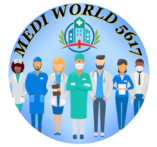INTERNAL MEDICINE DOCTOR

Internal medicine doctors, also called internists, are specialists in diagnosing, treating, and preventing a wide range of adult diseases and conditions. Their expertise lies in managing complex and chronic illnesses as well as promoting preventive care.
Role of Internal Medicine Doctors
Primary Care Providers:
- Offer comprehensive care for adults.
- Address routine health concerns and preventive measures.
Disease Diagnosis and Management:
- Skilled in identifying and treating complex medical issues.
- Manage chronic conditions like diabetes, hypertension, and heart disease.
Coordinators of Multidisciplinary Care:
- Refer patients to other specialists as needed.
- Collaborate with subspecialists to ensure comprehensive treatment.
Hospital Care:
- Treat patients admitted with severe or multi-system illnesses.
- Manage critical cases in collaboration with ICU teams.
Common Conditions Treated
- Cardiovascular Issues: Hypertension, heart failure, arrhythmias.
- Endocrine Disorders: Diabetes, thyroid diseases.
- Respiratory Diseases: Asthma, chronic obstructive pulmonary disease (COPD).
- Gastrointestinal Disorders: Acid reflux, liver diseases, irritable bowel syndrome (IBS).
- Infectious Diseases: Pneumonia, tuberculosis, fevers of unknown origin.
- Autoimmune Disorders: Lupus, rheumatoid arthritis.
- Neurological Conditions: Stroke, migraines, and dementia management.
Types of Internal Medicine Doctors
- General Internists:
- Focus on adult primary care and general health concerns.
- Subspecialized Internists:
- Pursue additional training (fellowships) in areas such as:
- Cardiology: Heart and vascular diseases.
- Pulmonology: Lung and respiratory disorders.
- Gastroenterology: Digestive system diseases.
- Endocrinology: Hormonal and metabolic disorders.
- Nephrology: Kidney diseases and hypertension.
- Rheumatology: Autoimmune and musculoskeletal disorders.
- Hematology: Blood disorders.
- Oncology: Cancer diagnosis and treatment.
- Infectious Diseases: Specialized care for complex infections.
- Pursue additional training (fellowships) in areas such as:
Skills of Internal Medicine Doctors
- Proficiency in medical diagnostics.
- Ability to manage multi-system diseases.
- Strong communication for patient education.
- Expertise in preventive health and lifestyle management.
Settings Where They Work
- Outpatient Clinics: Regular check-ups, chronic disease management.
- Hospitals: Inpatient care, emergency cases, ICU rounds.
- Research and Academia: Contributing to medical advancements and teaching.
- Private Practice: Comprehensive care tailored to individual needs.
